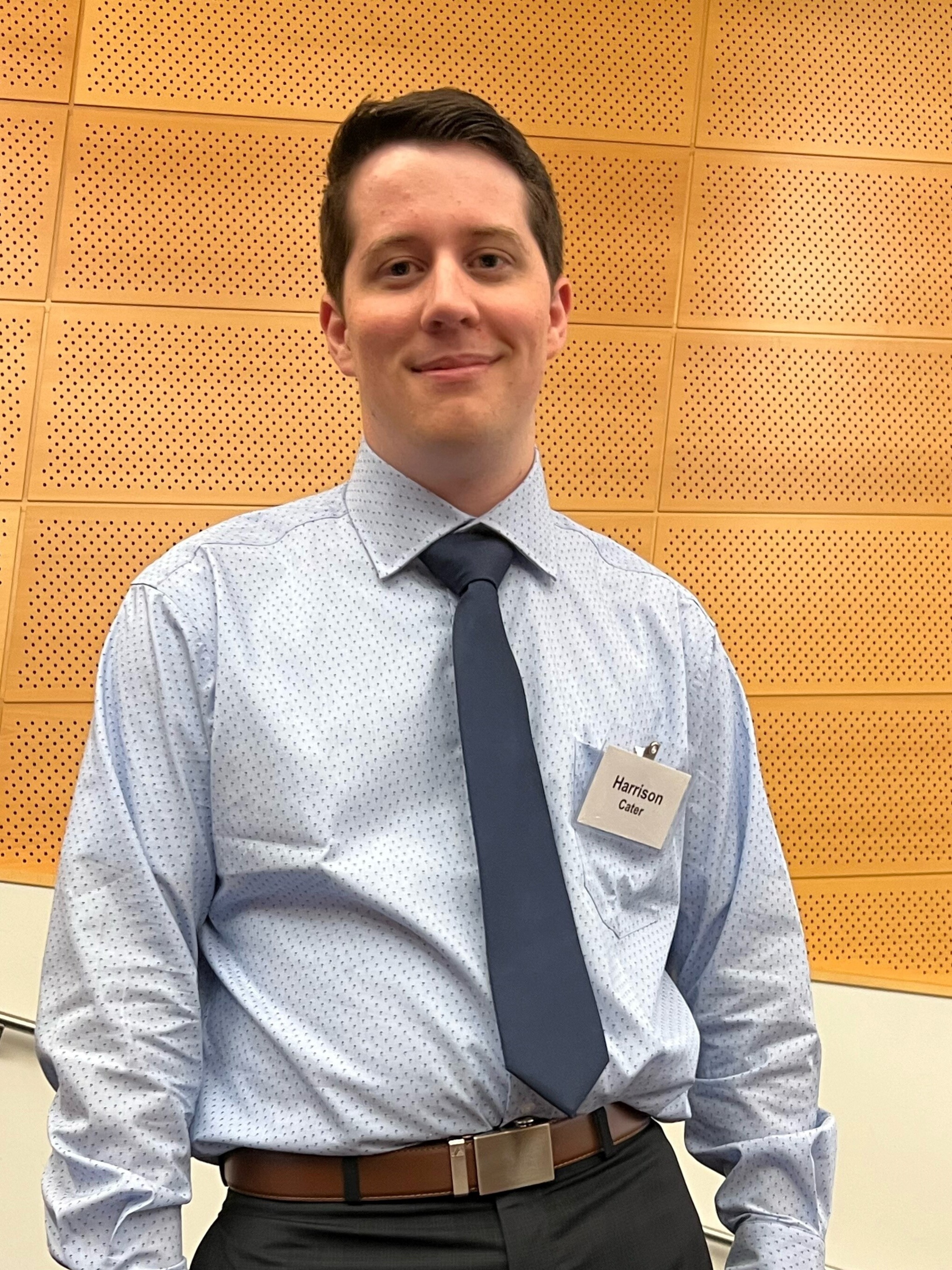Harrison Cater: Third-generation Iowa PA
Hometown: Cedar Rapids, Iowa
Education: University of Iowa
Harrison Cater is the third generation of his family to enroll in the physician assistant program at the University of Iowa, but the decision to follow in the footsteps of his father and grandfather was anything but easy.
Witnessing how crucial patient rapport was throughout his father's PA career, Cater initially hesitated, as he didn’t see himself as a “people person.”
“This field attracts people who are naturally outgoing,” he says. “It prioritizes those skills. But that was not me. I was a quiet person, but I was big into science and was extremely passionate about it."
He didn't even consider a career in health care until well into high school, when his father urged him to use his love of science to help people.
“He insisted that I had the bare bones of a good practitioner,” Cater says.

Cater began to explore the field through a health care internship in his senior year and decided to pursue it in college. At the University of Iowa, he worked on his interpersonal skills by getting involved with student organizations, connecting with professors through research, and interacting with varied patient populations through his job as an emergency room (ER) technician at St. Luke’s Hospital.
“At first, I was very rough around the edges, so for patients it was probably like talking to a cheese grater,” he says. “But even as an ER tech, I started to see that my work was impacting patients’ lives. When someone is in the ER, it may be one of the worst days of their year, if not their entire life. The least you can do for them is be a listening ear or a friendly face.”
Eventually, Cater realized that interacting with people no longer felt outside of his comfort zone. In fact, he began to genuinely enjoy it.
“The more I did it, the less difficult it became,” he says. “Interacting with people with different experiences and values from my own was extremely rewarding. I found I didn’t dislike interacting with people; I just didn’t like it that it was hard. Now, it’s effortless.”
Working in the emergency department also helped him hone the ability to communicate and collaborate in stressful situations.
“When we had codes, for example, everyone had a set role before the patient even got there, and everyone knew exactly what they were doing,” Cater says. “Seeing how 15 people could work in harmony in a small room for the best outcome for a patient was really rewarding.”
He feels that facing his discomfort in this area and pushing himself to develop his skills has opened him up to more fulfilling career and life experiences than he originally thought possible.
“Personally, ethically, morally, I’m better for it,” he says. “It dawned on me that 40% of this job is knowing the physiology and the medicine, and the other 60% is being able to interact with all sorts of people in all sorts of emotional states through all sorts of situations.”
He was still unsure if he wanted to become a PA or a medical doctor. He majored in biology and minored in human physiology and explored his options by speaking with other Iowa alumni of the PA program and the providers he worked alongside in the ER.
“The PAs that I talked to enjoyed their jobs. They loved the capacity that they worked,” he says. “The PA training path was also better aligned with where I wanted to go as a person.”
It dawned on me that 40% of this job is knowing the physiology and the medicine, and the other 60% is being able to interact with all sorts of people in all sorts of emotional states through all sorts of situations.
The road to deciding to become a PA wasn’t easy—but the choice of school was.
“My dad’s a fantastic PA,” Cater says. “He holds me to a high standard, and knowing that attitude, that level of competency and dedication to the profession, came from the university, there was never any other option for me than Iowa. That and the many accomplishments of the program’s alumni across the country cemented it as my number one choice.”
He looks forward to “striving to be the best person that I can be,” during his PA studies, and hopes that his story will show others who are considering health care professions to see their weaknesses as opportunities for growth, not reasons to be discouraged.
“Get started now; you’ll get the chance to develop more,” Cater advises. “When you’re marching on graduation day, you’ll look back on those hardships, and only then will you realize how far you’ve come.”